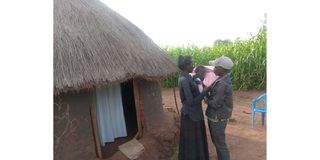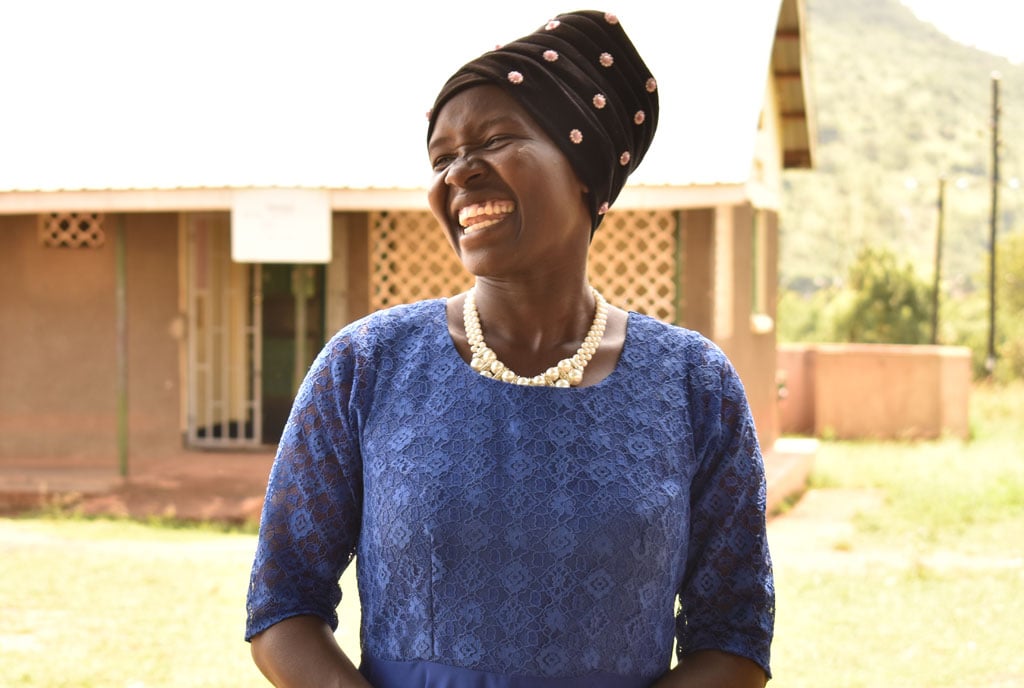Why child marriages have persisted in northern Uganda

What you need to know:
- Child marriages are rampant due to poverty, harmful cultural practices, negative gender norms, and limited access to education with events like the Covid-19 pandemic exacerbating the issue.
Poverty coupled with cultural practices have resulted in increased vulnerabilities of children in the northern district of Kitgum, exposing many girls to child marriages.
Local leaders and social workers say the number of those affected continues to grow.
Mr Patrick Kilama Otika, the head teacher of Kitgum Prison Primary School, says many girls have been forced out of school.
“A girl, who was supposed to sit for Primary Leaving Examinations (PLE) in 2022 did not sit. She was married off. Even this year, our candidate – a child was eloped and the parents did nothing and the girl did not register,” he says.
Mr Kilama blames the situation on negative gender norms and harmful cultural practices.
“Culturally, for us we look at girls as wives. Whether the girl is very young, I can begin to call the girl my in-law. So, the belief of our community is not promoting girl-child education,” he says.
Mr Alex Oyet, the coordinator of Acholi cultural institution, says the early marriages were rampant during Covid-19 lockdown.
“It was high because many families were lacking what to eat and some of them could send their children to get married so that the dowry helps other family members survive,” he says.
“People want to be with money on them. So, you would see a girl and think of money,” he says.
Lagum (not her real name) was forced into marriage at the age of 17 when she was in Senior Three. Today, she braves harsh conditions at a stone quarry in Kitgum Town to make ends meet.
“It was a horrible story. I just felt like hanging myself. So, I just said no. I cannot kill myself because of this scenario. Right now I have two children: One is seven years old, another one is four.
“I’m very worried about my future. Sometimes, I think about how I will help my children grow up responsibly in the future,” she says
Another teenage mother in Layik West Village, Lamola Parish in Amida West Sub-county, says: “I conceived when schools were closed due to Covid-19 pandemic and when I revealed the name of the person responsible for my pregnancy, my parents forced me to go and stay with him.”
She adds: “When they realised that I had again conceived, my parents became so annoyed and forced my husband pay Shs200,000 as luk (a fine) for getting me pregnant.”
Mr Joseph Okot, the head teacher of Okwici Primary School, says parents have a negative attitude towards education.
“For example, last year, many girls dropped out simply because some of the boys just came and took them away as their wives,” he says.
Ms Christine Lakot, the Kitgum probation and social welfare officer, says pregnancy serves as another significant contributing factor to child marriages.
“When a young girl becomes pregnant, societal pressure often forces her to leave her family and move to her husband’s home, irrespective of her age, whether she is 14, 15, or 17 years old,” Ms Lakot says.
She adds that parents struggle to keep their children in school.
Ms Sandra Tukwasibwe, the head of programmes at Joy for Children Uganda, says limited funding, the absence of effective, functional monitoring and accountability system from national to local levels makes it difficult to keep track of the implementation and enforcement of the existing laws and policies against child marriage.
The Ministry of Gender, Labour and Social Development acknowledges that programmes that directly concern communities are underfunded.
Mr Frank Mugabi, the ministry’s communications officer, says a child policy programme was rolled out in 2020 but the ministry has not been able to implement it due to lack of funding.
“We continue to lobby Members of Parliament to improve the funding. We have done one-on-one with MPs, held high level sessions with them to bring it to their notice on the need for funding social development programmes,” he says.
Efforts
In terms of monitoring, the government asserts the strength of both its legal framework and regulatory measures. According to Mr Mugabi, government initiatives extend to the grassroots level, involving village councils in addressing community issues.
“We have, for example, a child helpline now that is working 24/7. It’s a toll free line 116 where you can call and report any case of child abuse and response will be accorded immediately,” he says.
The Ministry of Gender, Labour and Social Development operates the child helpline and collaborates with child rights organisations that complement all government efforts.
The ministry’s communication officer also acknowledges that child marriage often has cultural, normative, and sectarian components, with some communities still adhering to the belief that girls should marry once they turn 18.
“Some of them don’t allow girls to get to 18 years, then they marry them off either for wealth or cultural reasons and that is not right. We have run campaigns against this,” he says.
Mr Mugabi underscores the ministry’s commitment to partnering with cultural institutions to combat harmful cultural practices.




